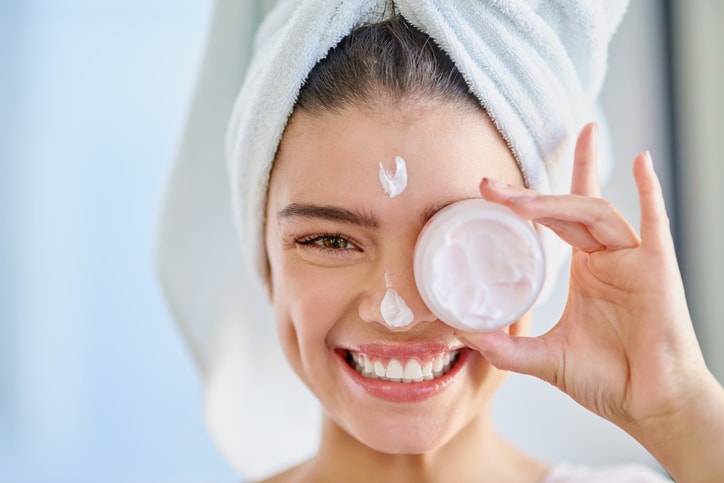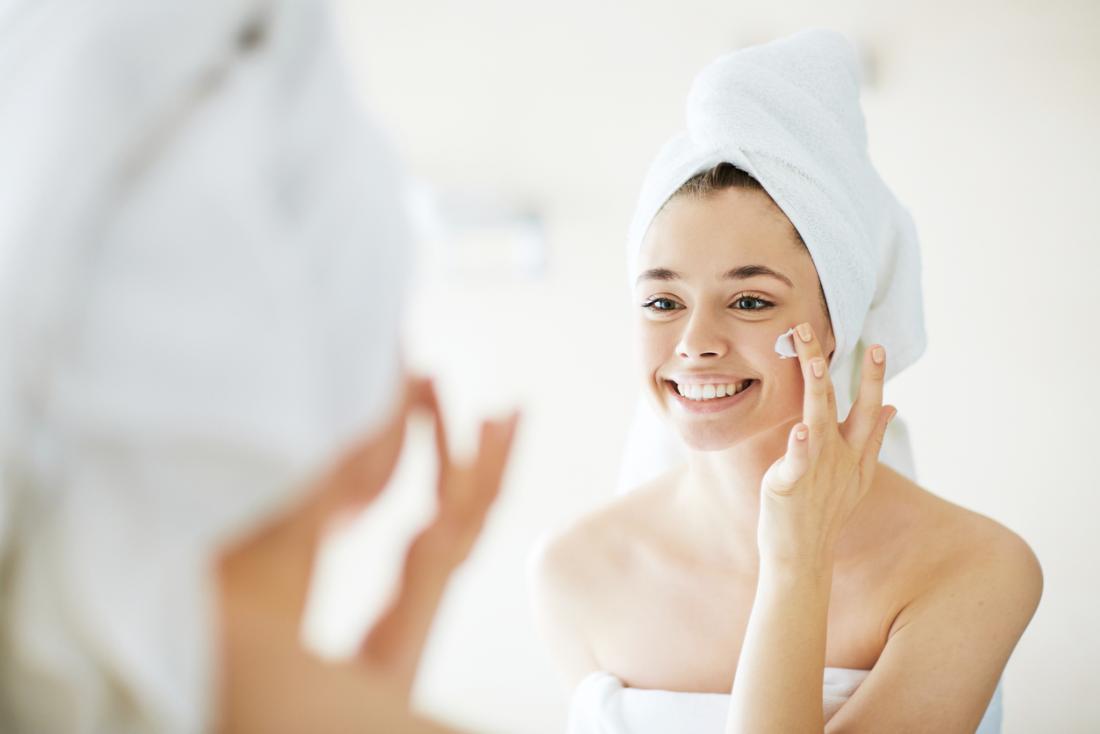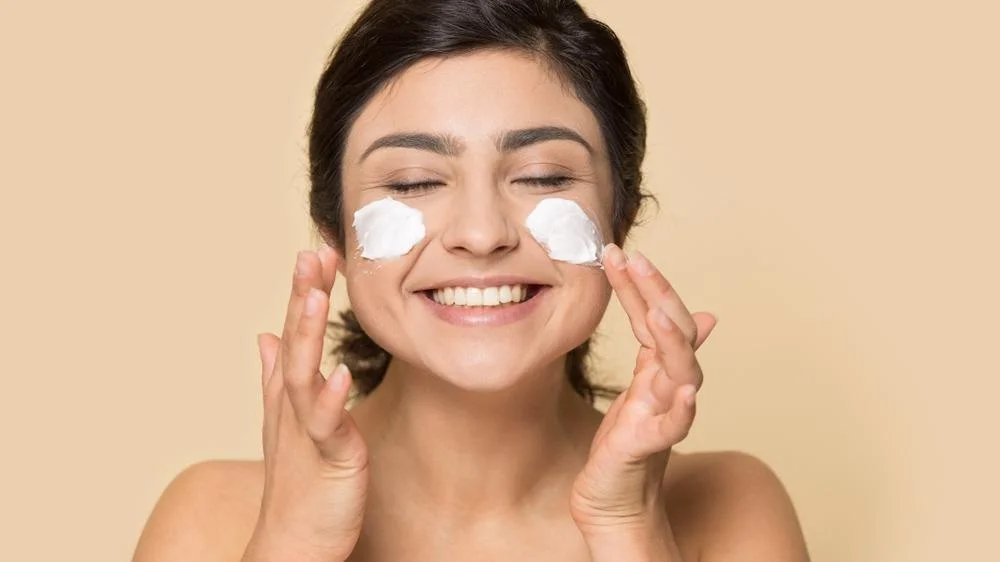Skin health is a reflection of our overall well-being. The skin, being the largest organ of the body, serves as a protective barrier against environmental hazards, regulates temperature, and enables sensory perception. Maintaining healthy skin is not just about aesthetics; it’s crucial for protecting the body and preventing diseases. This article explores the factors that influence skin health, practical skincare routines, and lifestyle habits that promote radiant and resilient skin.

Understanding Skin Structure and Function
To appreciate the importance of skin health, it’s essential to understand the structure and function of the skin. The skin comprises three main layers: the epidermis, dermis, and hypodermis.
1. The Epidermis
The epidermis is the outermost layer of the skin, providing a waterproof barrier and creating our skin tone. It consists of several sub-layers, including the stratum corneum (the outermost layer) and the basal layer (the innermost layer). The epidermis contains keratinocytes, which produce keratin, a protein that gives the skin its strength and resilience.
2. The Dermis
Beneath the epidermis lies the dermis, which contains connective tissue, blood vessels, hair follicles, and sweat glands. The dermis is responsible for the skin’s elasticity and strength, thanks to collagen and elastin fibers. It also houses nerve endings that provide sensory information.
3. The Hypodermis
The hypodermis, or subcutaneous tissue, is the deepest layer of the skin. It consists of fat and connective tissue, providing insulation and cushioning to the body. The hypodermis helps anchor the skin to underlying structures, such as muscles and bones.
Factors Affecting Skin Health
Several factors influence skin health, ranging from genetics to environmental exposures and lifestyle choices. Understanding these factors can help us adopt practices that promote healthy skin.
1. Genetics
Genetics play a significant role in determining skin type, texture, and susceptibility to certain skin conditions. While we cannot change our genetic makeup, we can manage other factors to optimize skin health.
2. Environmental Factors
Environmental exposures, such as ultraviolet (UV) radiation, pollution, and harsh weather conditions, can damage the skin. UV radiation from the sun is a major cause of premature aging, sunburn, and skin cancer. Pollution can lead to oxidative stress, causing inflammation and accelerating aging.
3. Nutrition
A balanced diet rich in vitamins, minerals, and antioxidants is essential for healthy skin. Nutrients such as vitamins A, C, and E, zinc, and omega-3 fatty acids support skin repair, hydration, and protection against damage.

4. Hydration
Proper hydration is crucial for maintaining skin elasticity and preventing dryness. Drinking enough water helps keep the skin hydrated from within, while using moisturizers can prevent water loss from the skin’s surface.
5. Lifestyle Habits
Lifestyle habits, including smoking, alcohol consumption, and udintogel stress levels, significantly impact skin health. Smoking reduces blood flow to the skin, depriving it of oxygen and nutrients, while excessive alcohol intake can dehydrate the skin. Chronic stress can trigger inflammation and exacerbate skin conditions like acne and eczema.
Skincare Routine for Healthy Skin
A consistent skincare routine tailored to your skin type and concerns can help maintain and improve skin health. Here are the essential steps in a skincare routine:
1. Cleansing
Cleansing removes dirt, oil, makeup, and pollutants from the skin’s surface. Use a gentle cleanser suited to your skin type (dry, oily, combination, or sensitive) to avoid stripping the skin of its natural oils. Cleanse twice daily, in the morning and before bedtime, to maintain a clean and fresh complexion.
2. Exfoliation
Exfoliation removes dead skin cells, promoting cell turnover and revealing smoother, brighter skin. Use a gentle exfoliator once or twice a week, depending on your skin’s sensitivity. Over-exfoliation can damage the skin barrier, so it’s important to exfoliate moderately.
3. Toning
Toners help balance the skin’s pH, tighten pores, and remove any remaining impurities. Choose an alcohol-free toner with soothing ingredients like witch hazel, rose water, or aloe vera to avoid drying out the skin.
4. Moisturizing
Moisturizers hydrate the skin and create a protective barrier to prevent moisture loss. Select a moisturizer appropriate for your skin type: lightweight, non-comedogenic formulas for oily skin, and richer, more hydrating creams for dry skin. Moisturize twice daily after cleansing and toning.
5. Sun Protection
Protecting the skin from UV radiation is crucial for preventing premature aging and reducing the risk of skin cancer. Apply a broad-spectrum sunscreen with an SPF of at least 30 daily, even on cloudy days and during winter. Reapply every two hours when exposed to direct sunlight.
6. Targeted Treatments
Incorporate targeted treatments, such as serums and masks, to address specific skin concerns like acne, hyperpigmentation, or aging. Ingredients like retinoids, vitamin C, hyaluronic acid, and niacinamide can provide additional benefits for the skin.
Lifestyle Habits for Healthy Skin

In addition to a good skincare routine, adopting healthy lifestyle habits can significantly enhance skin health:
1. Balanced Diet
Consume a diet rich in fruits, vegetables, whole grains, lean proteins, and healthy fats. Foods high in antioxidants, such as berries, leafy greens, nuts, and seeds, help combat oxidative stress and support skin health. Omega-3 fatty acids, found in fatty fish, flaxseeds, and walnuts, maintain skin hydration and reduce inflammation.
2. Hydration
Drink plenty of water throughout the day to keep the skin hydrated and support overall bodily functions. Herbal teas and water-rich foods like cucumbers and watermelon can also contribute to hydration.
3. Adequate Sleep
Quality sleep is essential for skin repair and regeneration. Aim for 7-9 hours of sleep per night to allow the skin to recover and maintain a healthy appearance. Establish a regular sleep routine and create a relaxing bedtime environment.
4. Stress Management
Practice stress-reducing techniques such as mindfulness, meditation, yoga, or deep breathing exercises. Engaging in hobbies and activities you enjoy can also help manage stress levels and promote healthy skin.
5. Avoid Harmful Habits
Avoid smoking and limit alcohol consumption, as both can have detrimental effects on the skin. Smoking constricts blood vessels, reducing nutrient and oxygen delivery to the skin, while alcohol dehydrates the skin and can cause inflammation.
Conclusion
Maintaining healthy skin is a multifaceted approach that involves a combination of a consistent skincare routine, a balanced diet, proper hydration, adequate sleep, stress management, and avoiding harmful habits. By understanding the factors that influence skin health and adopting practices that promote a radiant and resilient complexion, you can enhance not only your skin’s appearance but also its overall function and protection. Embrace these strategies for healthy skin and enjoy the benefits of a glowing, youthful, and well-nourished complexion.
Read More Article About “Prevention of Trauma: Safeguarding Mental Health and Well-being“
